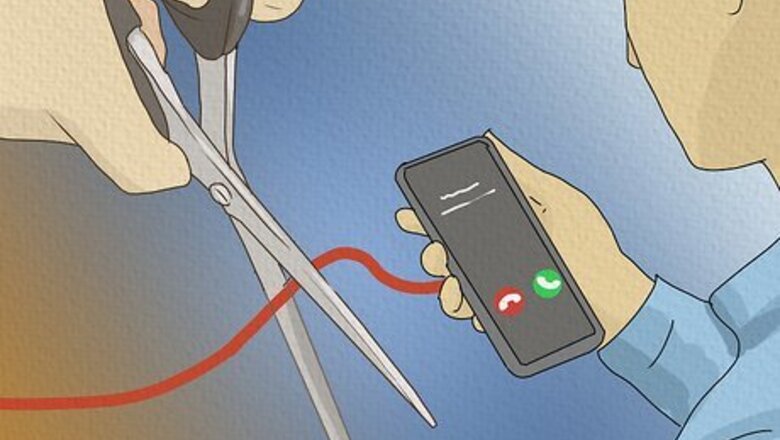
views
- End a friendship if you’ve grown distant, you can’t stop fighting, or if they’re a toxic friend.
- Cut off toxic friends cold turkey; if they’re not abusive or toxic, tell them directly you don’t want to be friends, or just let the relationship fade naturally.
- Expect to mourn the friendship, even if ending things was for the best. In time, you’ll likely meet new friends and feel happier and more at peace.
Making the Break
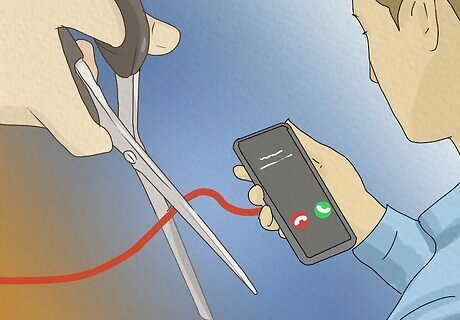
Cut off toxic friendships cold turkey. If your friend is a danger to you or your health, forget social etiquette and end it immediately. If your friend is manipulative or hurtful or you're afraid they will have a violent reaction to your friendship's end, just hit the brakes now. No conversation needed. Stop taking calls and texts, unfollow them on Instagram and TikTok, and don't show up in places where you know they will be. If you're in danger, notify authorities (a boss, school officials, the police) immediately. This is no longer a friendship worth handling alone.
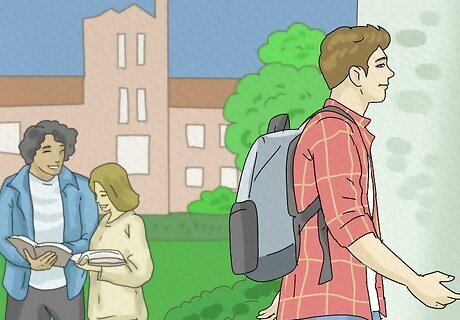
Stop hanging out together and let the friendship fade naturally. Friends go to different schools, move to different towns, or gravitate to different activities, and they start hanging out with other people. It's quick, painless, and usually mutual. To gracefully put a friendship out of its misery (or let it wilt, if that sounds too harsh), simply stop putting effort into the relationship. Keep your conversations in safe, shallow territory. Keep all of the emotional, personal baggage in your own bedroom and out of their house. Lose touch with them. Don't make as big an effort to call or text. Skip a phone call or two. Don't overdo it, but if you're not friends, you don't need to be in constant communication. Decline invitations to chill. As the distance between you grows, stop spending time with the ex-friend. They'll stop calling eventually, once they get the idea.
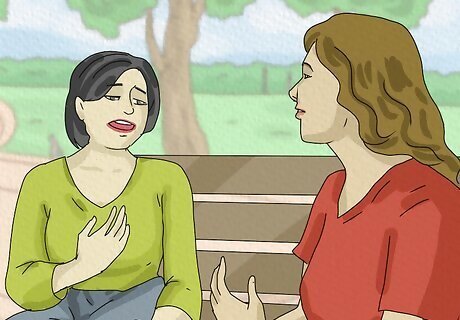
End the friendship in person, directly. Aside from extreme circumstances, it's usually best to have a discussion where you politely explain why you're ending the friendship, or at least to express how you feel about the friendship before you determine whether you're going to end it. This reinforces healthy communication and it could potentially minimize any residual animosities between the two of you. Choose a quiet, but still public, spot to talk. This way you can hightail it out of there when the conversation is over, or if things get heated (which they hopefully will not). Coffee shops and public parks are good choices. Let them know your concerns politely, firmly, and quickly. Cut right to the chase: "I don't think we should hang out anymore." Keep the conversation focused on you: for example, instead of accusing the person of drinking too much, go with "I need time to focus more on my studies and less on partying." Give the other person a chance to talk. It's important to let your friend tell you what they think about the situation, but don’t let it change your decision. Establish clear boundaries for the end of the relationship. Let them know if they’re still welcome to talk to you or not.
Dealing with the Aftermath
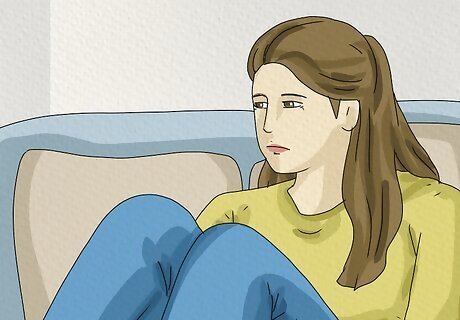
Let yourself mourn the lost friendship. Even if the friendship needed to end, it'll likely still hurt. After all, you were friends with this person for a reason: you probably had some good times together and maybe experienced some deep emotional intimacy. Grieving the loss doesn't mean it didn't need to happen, so allow yourself to feel strong sadness and even anger at the situation, maybe even for a few weeks or months. Let yourself cry if you need to. Journal about your feelings, or talk them through with a trusted friend. Addressing your emotions will help you to process them. If you're taking the loss of this friendship harder than you expected to, or if a month goes by and the feelings still feel very fresh, it may be worth speaking to a therapist. They can help you confront your emotions and find a way through to the other side of grief. Allow yourself to mourn, but try not to fixate on the past. Distract yourself with a new hobby or social events. In time, the grief at the loss of your friendship will fade.
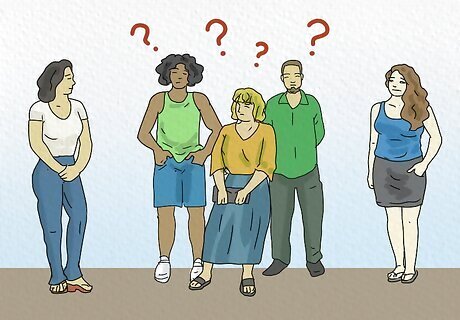
Anticipate possible shifts in your friend group. If you and your ex-friend share mutual friends, the friend group dynamic may shift a bit, but don't worry: it's likely to settle again once everyone adjusts. Depending on the boundaries you've enacted with your ex-friend, you might ask your mutual friends to tell you when your old friend will be at a social event so you can avoid it or prepare for it. Some mutual friends may feel torn between loyalty to you and to your ex-friend, so try to keep them out of the rift as much as you can. They'll appreciate your maturity and grace. You may explain to your mutual pals why you chose not to stay friends, if you're comfortable with it, but avoid gossiping about your ex-friend or attempting to "turn" anyone against them, even if your ex-friend doesn't treat you with the same grace.
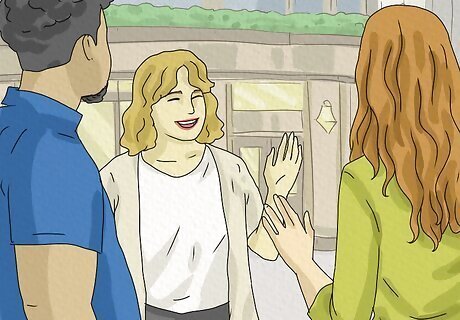
Meet some new friends. Breaking away from your ex-friend will give you the opportunity to find new friends who suit you better. Making new buds may also help you feel better about the friendship's end, since you'll have great new people in your life. Some fresh pals will do you good—as long as you're on the lookout for behavior similar to the friend you had to leave. Not sure how to make new friends? Try going to a trivia night at a local cafe or bar, take a cooking class or learn a new language, join a gym—making friends is hard for a lot of people as they get older, but there are endless opportunities to meet new pals.
Deciding if Should You End It
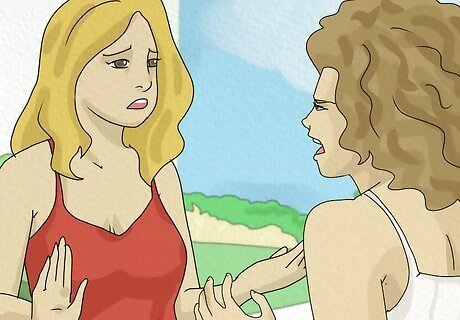
End it if you can't stop fighting. Do you think your anger will subside, or is this really the end? Friends fight and still stay friends, and you can't expect perfection from them all the time. But if you're fighting more than feeling friendly, it's probably time to bail. Who wants to be with someone they're always arguing with, anyway? Ask yourself some questions to better understand things: Was your disagreement a one-time occurrence or has been ongoing? If your disagreement just won't die, maybe the friendship should. Does the issue itself matter more than the friendship? Voting for different people is one thing, but if someone deeply disagrees with your core values, it may be a deal-breaker. Is there a minor hurt or a slight that neither of you will apologize for? If so, you may be able to mend the rift by talking it out. But if your friend betrayed you in a way you’re having a tough time overcoming, the friendship may be at its end.
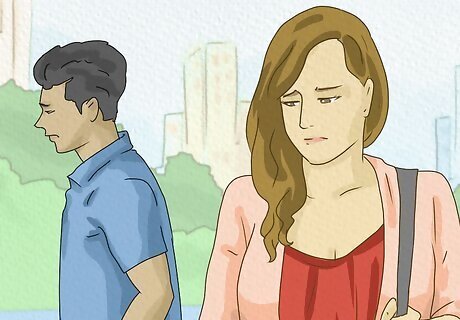
Consider ending it if you're growing distant, and neither of you wants to fix it. Sometimes friendships don't end with a fight, but with a fizzle. Has it been a while since you felt like calling up your friend for a chat? Do you find yourself making excuses not to hang out? If so, ask yourself whether you or your friend could do anything to save the relationship, or whether you even want to. If you're old friends, consider giving it another shot. Your friendship may just be going through a rough patch. But remember that just because you’ve been friends for a long time doesn’t mean you need to be friends forever. Does it feel like you’re the only one putting effort into the relationship? Having a strong friendship requires mutual cultivation and work. For it to be balanced, you both need to reach out and contribute to that friendship.
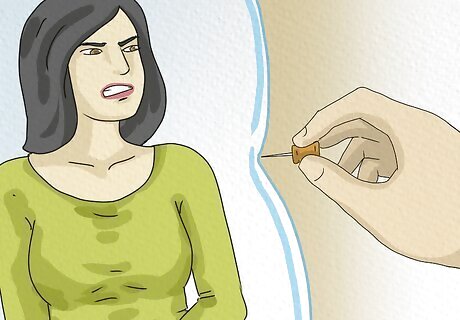
End the friendship if they regularly disregard your boundaries. If your friend regularly ignores your boundaries or makes you engage in activities or situations that you don't feel comfortable in, it may be time to re-evaluate that relationship. Ending any relationship is uncomfortable, but if it's a toxic situation, it's imperative to end it in order to protect yourself. It can be hard to cut off a friend if you share mutual friends who don’t understand why you’re ending the friendship. Try not to let this be a deterrent: if your friend is toxic, cutting them off may hurt, but you’re likely to be happier and more at peace in the long run.
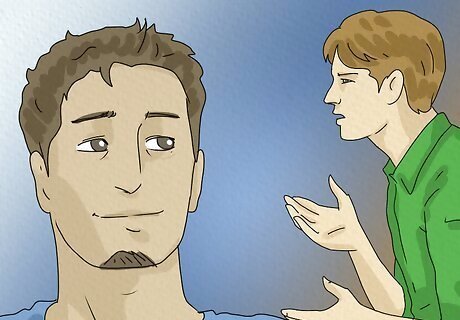
Ask yourself if just seeing less of them can solve your problems. Compare life without your friend to life with a little bit less of them. Would just hanging out less accomplish the same goals? Does it make you sad to imagine life without the person, or does it make you feel relieved? If you aren't sure ending the friendship is what you want to do, then just try seeing less of them. Are you still willing to put in the energy to keep this relationship going? If the answer is no, then move on and make the break. If you already know that you'll be happy to get rid of the drama, boredom, or other negative feelings that you associate with this person, ending it is a good idea.

















Comments
0 comment